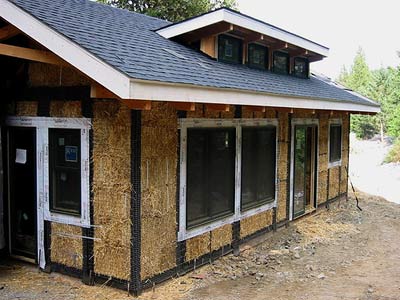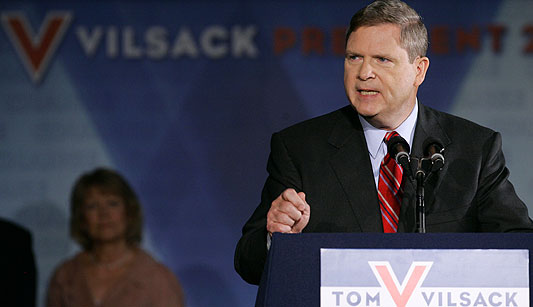The BBC reports today what may seem obvious to those of us thinking about our ever increasing population and decreasing space for viable food production: That in order to feed all of us, we have to start thinking outside the box…and fast.
Copied in full:
Food needs ‘fundamental rethink’
By Mark Kinver
Science and environment reporter, BBC News
Food crops, agriculture and biodiversity cannot be separated from one another
A sustainable global food system in the 21st Century needs to be built on a series of “new fundamentals”, according to a leading food expert.
Tim Lang warned that the current system, designed in the 1940s, was showing “structural failures”, such as “astronomic” environmental costs.
The new approach needed to address key fundamentals like biodiversity, energy, water and urbanisation, he added.
Professor Lang is a member of the UK government’s newly formed Food Council.
“Essentially, what we are dealing with at the moment is a food system that was laid down in the 1940s,” he told BBC News.
“It followed on from the dust bowl in the US, the collapse of food production in Europe and starvation in Asia.
“At the time, there was clear evidence showing that there was a mismatch between producers and the need of consumers.”
Professor Lang, from City University, London, added that during the post-war period, food scientists and policymakers also thought increasing production would reduce the cost of food, while improving people’s diets and public health.
We all know that waste is everywhere; it is immoral what is happening in the world of food
Raymond Blanc,
Chef and food campaigner
“But by the 1970s, evidence was beginning to emerge that the public health outcomes were not quite as expected,” he explained.
“Secondly, there were a whole new set of problems associated with the environment.”
Thirty years on and the world was now facing an even more complex situation, he added.
“The level of growth in food production per capita is dropping off, even dropping, and we have got huge problems ahead with an explosion in human population.”
Fussy eaters
Professor Lang lists a series of “new fundamentals”, which he outlined during a speech he made as the president-elect of charity Garden Organic, which will shape future food production, including:
* Oil and energy: “We have an entirely oil-based food economy, and yet oil is running out. The impact of that on agriculture is one of the drivers of the volatility in the world food commodity markets.”
* Water scarcity: “One of the key things that I have been pushing is to get the UK government to start auditing food by water,” Professor Lang said, adding that 50% of the UK’s vegetables are imported, many from water-stressed nations.
* Biodiversity: “Biodiversity must not just be protected, it must be replaced and enhanced; but that is going to require a very different way growing food and using the land.”
* Urbanisation: “Probably the most important thing within the social sphere. More people now live in towns than in the countryside. In which case, where do they get their food?”
Professor Lang said that in order to feed a projected nine billion people by 2050, policymakers and scientists face a fundamental challenge: how can food systems work with the planet and biodiversity, rather than raiding and pillaging it?
The UK’s Environment Secretary, Hilary Benn, recently set up a Council of Food Policy Advisers in order to address the growing concern of food security and rising prices.
Farm working cutting kale (Getty Images)
The 21st Century is going to have to produce a new diet for people, more sustainably, and in a way that feeds more people more equitably using less land
Professor Tim Lang
Mr Benn, speaking at the council’s launch, warned: “Global food production will need to double just to meet demand.
“We have the knowledge and the technology to do this, as things stand, but the perfect storm of climate change, environmental degradation and water and oil scarcity, threatens our ability to succeed.”
Professor Lang, who is a member of the council, offered a suggestion: “We are going to have to get biodiversity into gardens and fields, and then eat it.
“We have to do this rather than saying that biodiversity is what is on the edge of the field or just outside my garden.”
Michelin-starred chef and long-time food campaigner Raymond Blanc agrees with Professor Lang, adding that there is a need for people, especially in the UK, to reconnect with their food.
He is heading a campaign called Dig for Your Dinner, which he hopes will help people reconnect with their food and how, where and when it is grown.
“Food culture is a whole series of steps,” he told BBC News.
“Whatever amount of space you have in your backyard, it is possible to create a fantastic little garden that will allow you to reconnect with the real value of gardening, which is knowing how to grow food.
“And once you know how to grow food, it would be very nice to be able to cook it. If you are growing food, then it only makes sense that you know how to cook it as well.
“And cooking food will introduce you to the basic knowledge of nutrition. So you can see how this can slowly reintroduce food back into our culture.”
Waste not…
Mr Blanc warned that food prices were likely to continue to rise in the future, which was likely to prompt more people to start growing their own food.
Norfolk black turkey (Getty Images)
Sustainable food helps protect rare breeds and varieties
Raymond Blanc on good food
He was also hopeful that the food sector would become less wasteful.
“We all know that waste is everywhere; it is immoral what is happening in the world of food.
“In Europe, 30% of the food grown did not appear on the shelves of the retailers because it was a funny shape or odd colour.
“At least the amendment to European rules means that we can now have some odd-shaped carrots on our shelves. This is fantastic news, but why was it not done before?”
He suggested that the problem was down to people choosing food based on sight alone, not smell and touch.
“The way that seeds are selected is about immunity to any known disease; they have also got to grow big and fast, and have a fantastic shelf life.
“Never mind taste, texture or nutrition, it is all about how it looks.
“The British consumer today has got to understand that when they make a choice, let’s say an apple – either Chinese, French or English one – they are making a political choice, a socio-economic choice, as well as an environmental one.
“They are making a statement about what sort of society and farming they are supporting.”
Growing appetite
The latest estimates from the UN Food and Agriculture Organization (FAO) show that another 40 million people have been pushed into hunger in 2008 as a result of higher food prices.
This brings the overall number of undernourished people in the world to 963 million, compared to 923 million in 2007.
The FAO warned that the ongoing financial and economic crisis could tip even more people into hunger and poverty.
“World food prices have dropped since early 2008, but lower prices have not ended the food crisis in many poor countries,” said FAO assistant director-general Hafez Ghanem at the launch of the agency’s State of Food Insecurity in the World 2008 report.
“The structural problems of hunger, like the lack of access to land, credit and employment, combined with high food prices remain a dire reality,” he added.
Professor Lang outlined the challenges facing the global food supply system: “The 21st Century is going to have to produce a new diet for people, more sustainably, and in a way that feeds more people more equitably using less land.”





